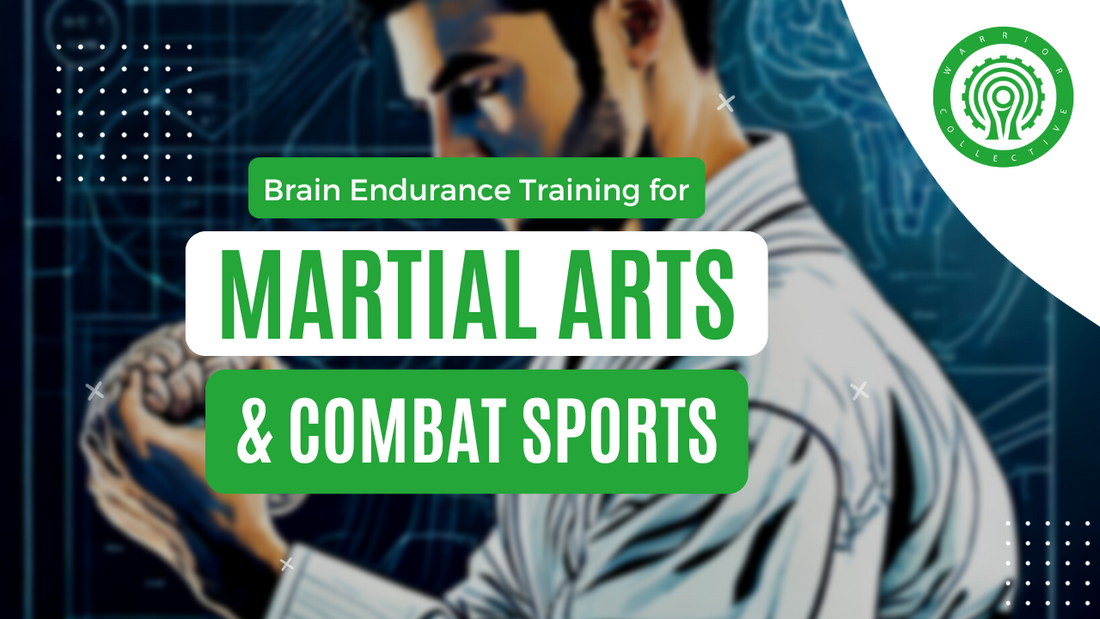
Brain Endurance Training in Martial Arts and Combat Sports
Through my #InsideChat podcast, I am able to personally speak with a wide range of leading figures from the world of martial arts, sports, psychology, sociology and nutrition on a regular basis. One such individual I had the pleasure of speaking to and learning from recently is internationally renowned brain endurance expert, Professor Neil Dallaway of the university of Birmingham. In this particular episode, we spoke about how to use brain endurance training in martial arts and combat sports.
Martial arts and combat sports like boxing, mixed martial arts, wrestling, and judo require immense physical fitness, skill, strategy, and mental toughness to succeed. Competitors need the endurance to go multiple high-intensity rounds, reaction speed to capitalise on openings, and mental focus to execute game plans under pressure.
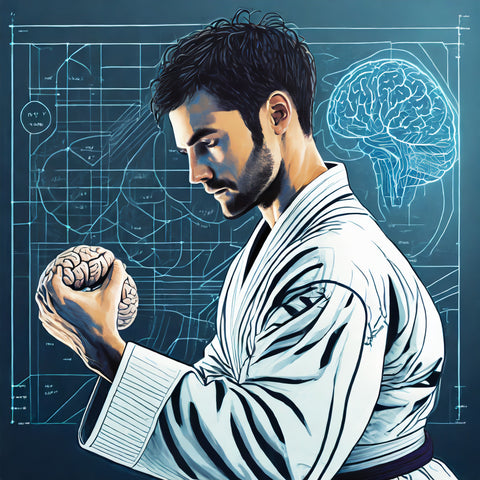
Brain endurance training to raise sports performance in martial arts and combat sports
In this extensive blog post written up from this talk, we’ll explore how “brain endurance training” can give martial artists and combat sport athletes an edge. We’ll cover:
- What is brain endurance training and how does it work?
- The science behind brain endurance training
- Practical applications for martial arts and combat sports
- Sample brain endurance training techniques
- Monitoring mental fatigue
- How sleep, rest, and recovery enable adaptation
- Ethical concerns around extreme weight cutting
This in-depth guide contains actionable tips for coaches and fighters looking to implement brain endurance training. Parents will also gain perspective on how mental skills training can complement physical conditioning for youth in combat sports. Let’s dive in!
What is Brain Endurance Training?
Brain endurance training involves adding mentally demanding cognitive tasks during physical training. This dual-task training makes workouts feel harder, tapping into mental reserves. Over time, the same physical training feels easier as the brain adapts, enabling higher performance.
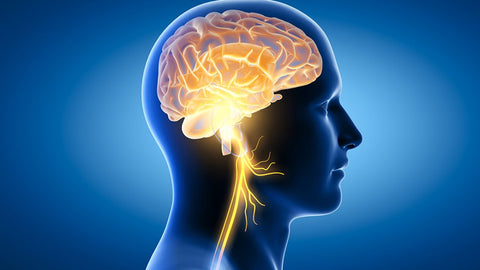
During our podcast, Professor Dallaway explains: “Brain endurance training is the process of adding mentally demanding cognitive activity to physical training, which makes it feel harder. And then as a result, once it's removed, your performance improves.”
In simplest terms, brain endurance training works by:
- Stressful cognitive tasks fatigue the brain
- This mental fatigue makes physical exertion feel harder
- Training the brain and body together increases overall endurance
- Removing the extra mental load allows greater physical performance
This novel training method is gaining traction among elite athletes and teams. By honing mental stamina alongside physical conditioning, brain endurance training can provide an edge in sports demanding sustained concentration.
Let’s explore the science underpinning this intriguing phenomenon...
The Science Behind Brain Endurance Training
Where did the concept for brain endurance training come from?
Professor Dallaway explains the origins:
“What first piqued my interest was the central governor model from professor Tim Noakes, a fairly controversial sports scientist. He said the brain has a role in recruiting and then stopping motor unit activation during exercise.”
Noakes proposed the brain actively regulates exertion by modulating our perceived effort and creating the sensation of fatigue. This “central governor” protects the body from exceeding physiological limits, overriding motivation when continuing could cause harm.
Professor Dallaway continues: “This overlooked role of the brain got me interested. Then a PhD opportunity became available looking into this, which I managed to get. Specifically, it’s using interventions that act centrally, not peripherally, to improve performance.”
Research shows mental fatigue impairs physical endurance, but could those effects be harnessed for training?
“Mental fatigue is generally defined as a psychobiological state caused by prolonged demanding cognitive activity. To induce it experimentally, someone engages in a prolonged cognitively demanding task which will induce mental fatigue. Then they do a physical performance test and the overwhelming majority of evidence shows their performance deteriorates."
Professor Dallaway continues: "We thought, can we use this to actually improve performance? Professor Samuele Marcora proposed ‘brain endurance training’ where we induce mental fatigue during physical training. So there's extra mental demand alongside physical training. Can that improve performance? We’ve shown it does.”
How does this work?
Both Professors Marcora and Dallaway theoriae brain endurance training acts on shared cognitive resources and brain regions involved in perceiving exertion and modulating performance:
“The reason mental fatigue impairs physical performance is it elevates your perceived exertion. When mentally tired, physical activity feels harder. The proposed mechanism is the same brain areas are involved in perceiving effort, demanding cognitive tasks, and physiological responses to exercise. If these areas become fatigued, it affects subsequent physical performance."
By training the brain and body together, athletes can increase overall endurance and learn to push through perceived exhaustion:
“It's an additive effect of putting extra cognitive load on. It improves physical and cognitive performance more than either alone. Physical training makes exercise feel easier when mental demands are removed. Cognitive training hones abilities like reaction time.”
This means adding a mentally gruelling component to workouts teaches the brain to block out fatigue. Just as marathon runners learn to overcome agony in their legs, brain endurance training strengthens mental resistance to perceived exertion.
Let’s now explore how martial artists and combat sport athletes could employ this technique...
Applications for Martial Arts and Combat Sports
Brain endurance training holds intriguing possibilities for grappling, striking, and combat sports in general. By honing mental stamina and resistance to perceived exertion, fighters can maintain technique, reaction speed, and power despite fatigue.
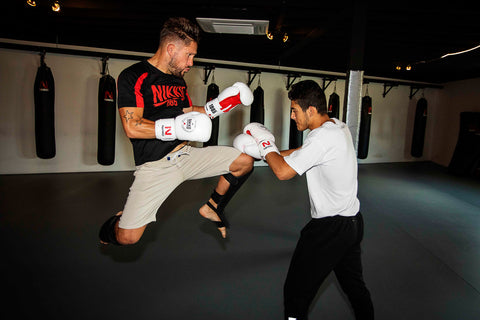
Professor Dallaway details how brain endurance training could benefit mixed martial arts:
“For mixed martial arts, the intermittent method may work well. Do demanding cognitive tasks between bouts of training, not concurrently. Put yourself in a mentally fatigued state before training - your brain's tired, so training feels harder. Or do it after, when physically fatigued, training mental effort.”
He continues:
“Reaction time could be trained this way. Faster responses to stimuli could transfer to performance. There’s some skill acquisition research showing elite performers have better neural activation patterns. Whether that's genetic or from training is unsure.”
Many leading athletes and teams are already implementing tactics like these:
“High level performers are using cognitive training techniques, like light boards to train reaction time and responding to visual stimuli. Coaches are trying this out, though there’s limited evidence currently to support it.”
For combat sports, brain endurance training may:
- Increase mental stamina to maintain focus and intensity over multiple rounds
- Help override perceived exhaustion and feelings of pain
- Maintain speed and reaction time when physically fatigued
- Enhance skill acquisition and development of sport-specific neural pathways
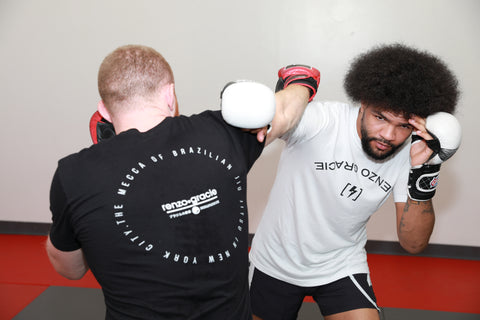
Let's now look at some sample techniques coaches and fighters could employ...
Sample Brain Endurance Training in Martial Arts Techniques
There are many ways to incorporate brain endurance training based on needs and preferences. Professor Dallaway details options:
"You can do it before, during or after exercise. Before training mentally fatigued makes it tougher. During only works for some sports - you need hands free. After trains mentally exhausted."
He continues:
"We tried intermittent between sets, doing cognitive tasks during breaks. This utilises spare time without impairing training."
To induce mental fatigue, athletes can use apps with strenuous cognitive tasks working executive functions like:
- Sustained attention
- Working memory
- Focus
- Response inhibition
- Reaction time
Professor Dallaway explains these must be challenging and target key abilities:
"Tasks have to stress specific executive functions used in that sport - concentration, working memory, response inhibition. They should keep adapting to stay demanding as you improve."
Watch and Listen to the full podcast between myself and Professor Neil Dallaway below
Here are just a few examples of potential brain endurance training techniques:
- Use a reaction time app between rounds of sparring. Repeat boxing combinations whenever you make an error.
- During runs, listen to random number strings and repeat them back throughout.
- In grappling drills, watch video clips and recall details after each rep.
- Between heavy bag rounds, do math problems or verbal fluency tasks.
- During rest between weight sets, respond to challenging cognitive tests.
- Wake early to do 20 minutes of mental tasks. Train in fatigued state.
- After high-intensity training, spend 10 minutes on a reaction time app.
The options are endless - be creative! Try different methods to determine what works best and integrate into existing training. Just ensure tasks stay cognitively demanding.
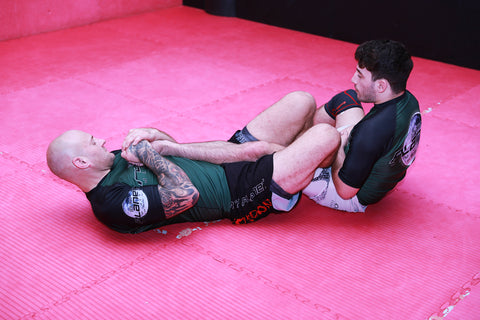
Monitoring Mental Fatigue
To employ brain endurance training effectively, athletes should track baseline cognitive performance and monitor mental fatigue.
Professor Dallaway suggests simple tracking strategies:
“Have athletes rate mental fatigue alongside other variables like sleep, soreness, stress. Or do a brief cognitive task daily to get baseline scores. If these deviate, it likely indicates mental fatigue.”
He continues:
“Elite performers actually show resilience to mental fatigue effects on physical performance. But monitoring can help determine if low motivation or poor training is from mental fatigue.”
Coaches may adjust training if an athlete shows high mental fatigue. Professor Dallaway explains:
“If mentally fatigued, a tough training session may need to wait. Or provide feedback during the session to counteract effects. View it as brain endurance training, but treat performances kindly.”
For those looking to implement brain endurance training, rating mental energy in training logs or doing quick reaction time tests can help track its effects and inform ideal timing in periodized plans.
Recovery Enables Adaptation
Brain endurance training provides a training stimulus - adaptation and growth occur during rest. Professor Dallaway emphasises getting this balance right:
“Athletes may require more rest to adapt to added cognitive load. Don’t overdo it near competitions. Use it early in training cycles or for specific sessions.”
Sleep, nutrition, and avoiding burnout are particularly crucial when taxing the brain as well as the body. Parents and coaches of youth athletes should monitor fatigue carefully when introducing mental skills training.
The experts also caution brain endurance training may not be as effective for elite performers already at the peak of their powers:
“Elite athletes train extremely hard already and show resilience to mental fatigue. Brain endurance training may benefit recreational athletes more looking to get more from themselves.”
Still, many top competitors report cognitive tasks help keep training challenging. Teams are increasingly incorporating reaction drills, video analysis quizzes, and mental imagery into warm-ups, practice, and exercise recovery.

Concerns Around Extreme Weight Cutting
The final topic addressed covers the use of dangerous weight cutting methods prevalent in some combat sports. Professor Dallaway expresses interest in studying the cognitive impacts of excessive weight cutting.
He explains:
“It would be fascinating to see if those weight cutting deviate from baselines in cognitive tests and self-reported mental fatigue. Brain function requires fuel, so I’d expect declines when cutting weight. This could have implications on competition day.”
Aggressive cutting likely impairs all aspects of performance - physical, technical, tactical, and mental. Dehydration affects consciousness, alertness, and decision-making.
More research is needed, but excessive weight cutting has no place in a healthy sport. Rule changes and education on safer methods are overdue. Maintaining strength and speed should be the priority, not chasing arbitrary weight classes through severe dehydration.
Brain endurance training may actually demonstrate how better preparing mentally counteracts perceived exhaustion. If skills and concentration remain sharp, the scales become less relevant. Outperforming opponents through superior conditioning and strategy is the higher pursuit.
Summary and Next Steps
Professor Dallaway hopes this guide provides you with a solid introduction to brain endurance training and how it can elevate martial arts practice and combat sport performance. To recap:
- Brain endurance training in martial arts works by creating mental fatigue during physical exertion, thus increasing overall endurance.
- It can help fighters push through perceived exhaustion, maintain skills, and sustain reaction time when fatigued.
- Sample techniques include reaction drills between rounds, mental challenges during runs and workouts, and training in a fatigued state.
- Monitor mental energy to employ brain endurance training most effectively.
- Allow proper recovery to adapt to the added stimulus.
- More research is needed, but excessive weight cutting likely impairs cognitive functioning critical for competition.
Related Content
If you enjoy this article on How to Cope with Pressure and Performance Anxiety in Combat Sports then you may well love Motivating Fighters and Developing Mental Toughness in Martial Arts and Combat Sports or 19 Ways to Become a World Champion in Coaching Martial Arts and Combat Sports as already featured on this site.
Warrior Marketplace
Here, you can also learn more about all of the other exceptional exceptional Muay Thai, Kickboxing, Boxing, Karate and Taekwondo Instructional Volumes featured on the Warrior Collective!
Keep up to date with the Warrior Collective
